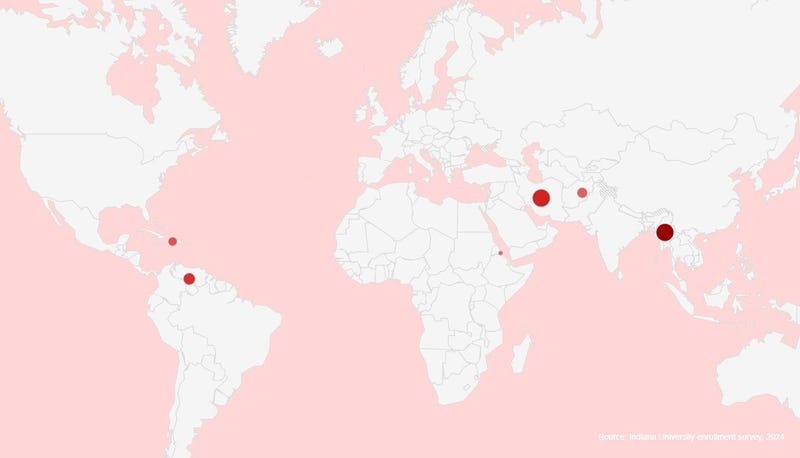
There's plenty of reaction to President Donald Trump's new ban on citizens of 12 countries, primarily in Africa and the Middle East, from entering the United States. There's also restricted access for citizens of seven other nations, resurrecting and expanding a hallmark policy of his first term.
In a video released on social media, Trump tied the new ban to Sunday's terror attack in Boulder, Colorado, saying it underscored the dangers posed by some visitors who overstay visas. The suspect in the attack is from Egypt, a country that is not on Trump’s restricted list. The Department of Homeland Security says he overstayed a tourist visa.
Minnesota Council on American-Islamic Relations executive director Jaylani Hussein says there is a significant impact to the community with these travel bans.
"This is gonna be continuing to divide families," Hussein told WCCO Radio. "It will delay individuals that were planning to come here, families that have been waiting for their loved ones to come here, brothers, sisters, uncles."
The travel ban applies to citizens of Afghanistan, Myanmar, Chad, Republic of Congo, Equatorial Guinea, Eritrea, Haiti, Iran, Libya, Somalia, Sudan and Yemen.
Hussein called the move reactionary.
"I think obviously, you know, we have a a domestic terrorist attack incident in Colorado that everyone condemned, obviously with a person who appears to be mentally ill, and then all of a sudden now we institute a ban which has majority of African and Muslim countries," says Hussein.
The policy takes effect at 12:00 a.m. this coming Monday.
Trump said some countries had “deficient” screening and vetting or have historically refused to take back their own citizens. His findings rely extensively on an annual Homeland Security report of visa overstays of tourists, business visitors and students who arrive by air and sea, singling out countries with high percentages of remaining after their visas expired.
“We don't want them,” Trump said.
The Associated Press contributed to this story.
